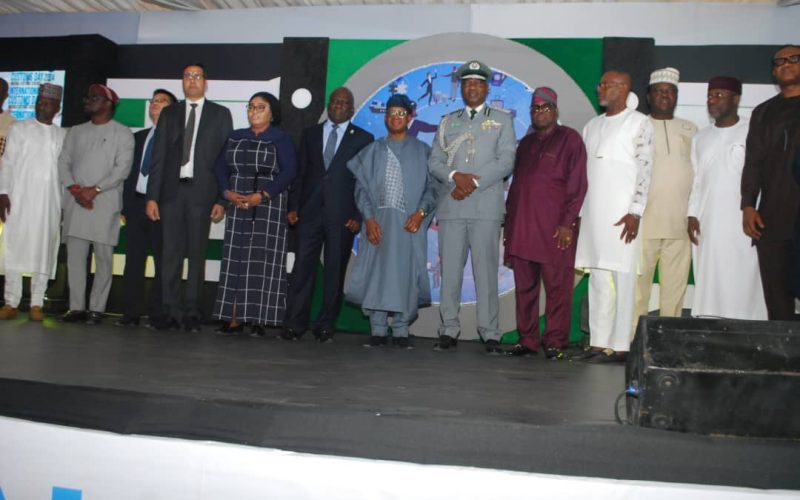Celebrating this year International Customs Day, the Nigeria Customs Service (NCS) through its Comptroller General Bashir Adewale Adeniyi has announced that the service will in February 2024 open its Time Release Study (TRS) to aid trade facilitation and reduce clearing process in the Nigeria Ports, the idea that seamlessly aligns with the ongoing reformation of ‘New Customs’.
The Comptroller General disclosed this at the service’s training school in Ikeja on Friday the 26th of January in Lagos.
Based on the World Customs Organisation , Time Release Study is a strategic and internationally recognised tool to measure the actual time required for the release and /or clearance of goods from the time of arrival until the physical release of cargo with a view to finding bottlenecks in the trade flow process and taking necessary measures to improve.
In his opening remarks during the celebration Adeniyi said the study is a testament to the commitment of customs to trade facilitation an initiative efforts of Customs to enthrone efficiency in their services
“In February, we will be launching the Time Release Study (TRS)”.
“The TRS is a comprehensive exercise aimed at optimizing our processes and reducing the time it takes for goods to be released.
” This study is a strategic move towards enhancing our operations, and I call upon the cooperation of all our partners, including the National Trade Facilitation Committee (NTFC), to actively participate in this endeavor.
” Your insights and collaboration will be invaluable as we work towards achieving seamless and timely trade processes that benefit us all” he declared.
The CGC emphasized the significance of collaboration and partnership with the stakeholders and other sister agencies, noted that such synergy has had a great positive impact on the operations of the Customs.
Adeniyi also revealed other initiatives that centre around the stakeholders and signpost the importance the service attaches to a strategic partnership.
According to him, the implementation of the Authorized Economic Operator( AEO) scheme will reach advanced stages in February followed by the introduction of Advanced Ruling.
Similarly, these initiatives will be followed by the establishment of a Customs laboratory.
” Activities centered on stakeholders, as previously committed, will soon be fully operational, illustrating our dedication to concrete actions.
” In February, the Authorized Economic Operator (AEO) scheme implementation will reach advanced stages, this will be followed by the introduction of the Advanced Ruling (AR).
“Additionally, the establishment of a Customs laboratory will commence with a workshop scheduled in Gwagwalada next week.
“These initiatives represent concrete steps toward strengthening our relationships with stakeholders”
Adeniyi further disclosed that the service is committed to implementing the Lagos Continental Document produced through intensive stakeholders engagement and participation at the December CGC conference.
According to him, such measures as the resolution of multiple alerts, deduction of Customs’ multiple checkpoints and improvement of officers conduct are vigorously being pursued.
“The Lagos Continental Declaration document was a product of exhaustive consultations with stakeholders during.
” This document is presently undergoing implementation. Initial measures, including the resolution of multiple alerts, reduction of customs checkpoints, and improvement of officer conduct, have been actively undertaken.
” Additional components of the declaration will be pursued with thoroughness, and we anticipate completing due diligence by the end of the first quarter of this year”
However, he warned that all these stakeholders- focused initiatives will only be enjoyed by trade-compliant players as the customs will not compromise strict adherence to the rules of the game.
He assured that the service is open to negotiation with the non-compliant traders who are willing to change their ways and embrace the rules of the game.
“This year, we commit to fostering a substantially improved relationship with stakeholders who adhere to the rules.
“We recognize that authentic partnerships are constructed on mutual respect and understanding.
” Those who remain compliant and abide by the rules can anticipate a more streamlined and supportive collaboration.
” However, it’s crucial to emphasize that this commitment does not extend to non-compliant entities.
” We assert unequivocally that adherence to regulations is non-negotiable.
” Nonetheless, we remain open to engaging with non-compliant entities that demonstrate a willingness to reform and align with ethical standards” he concluded .

